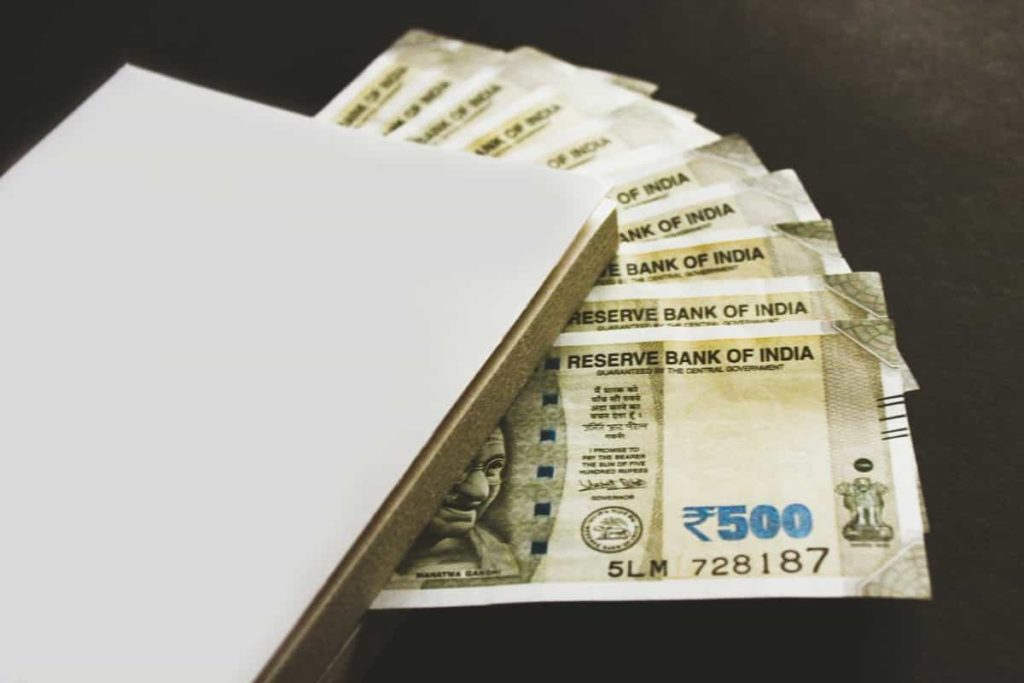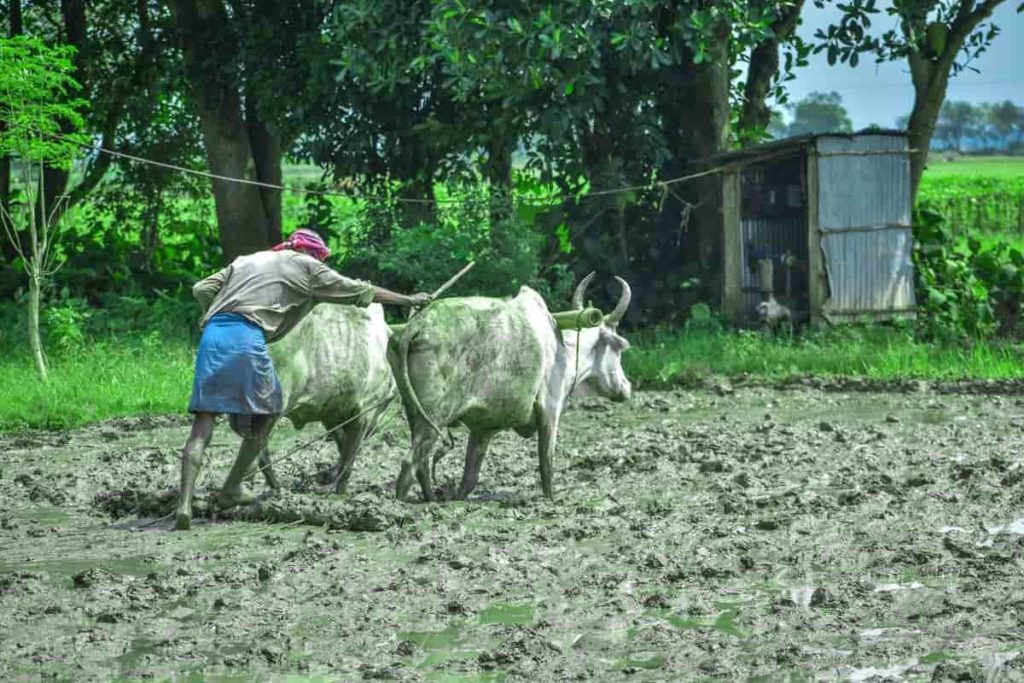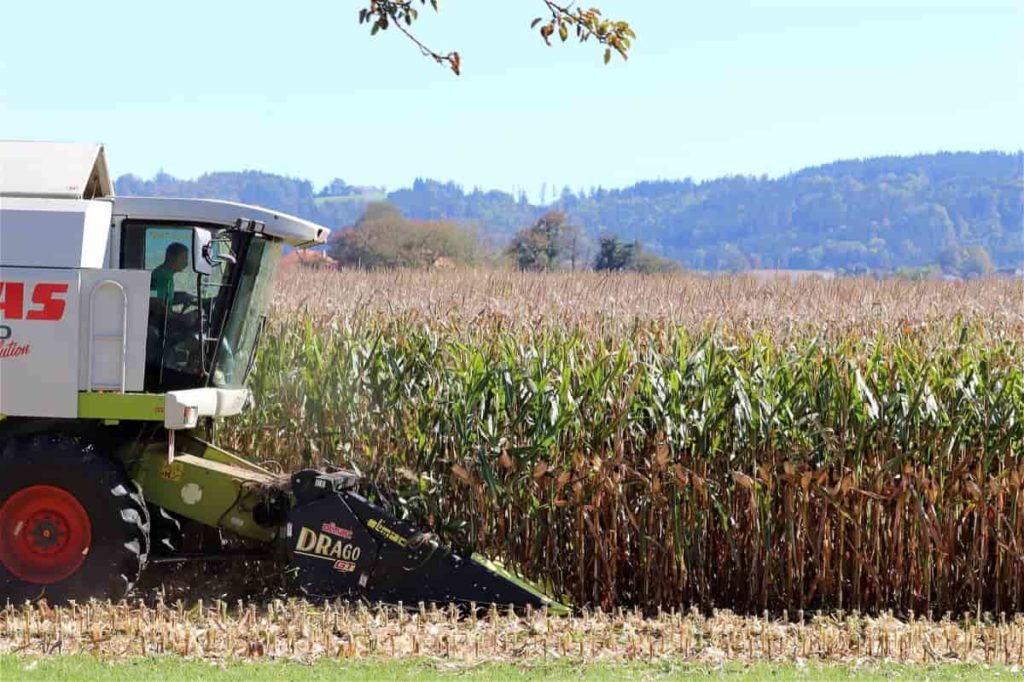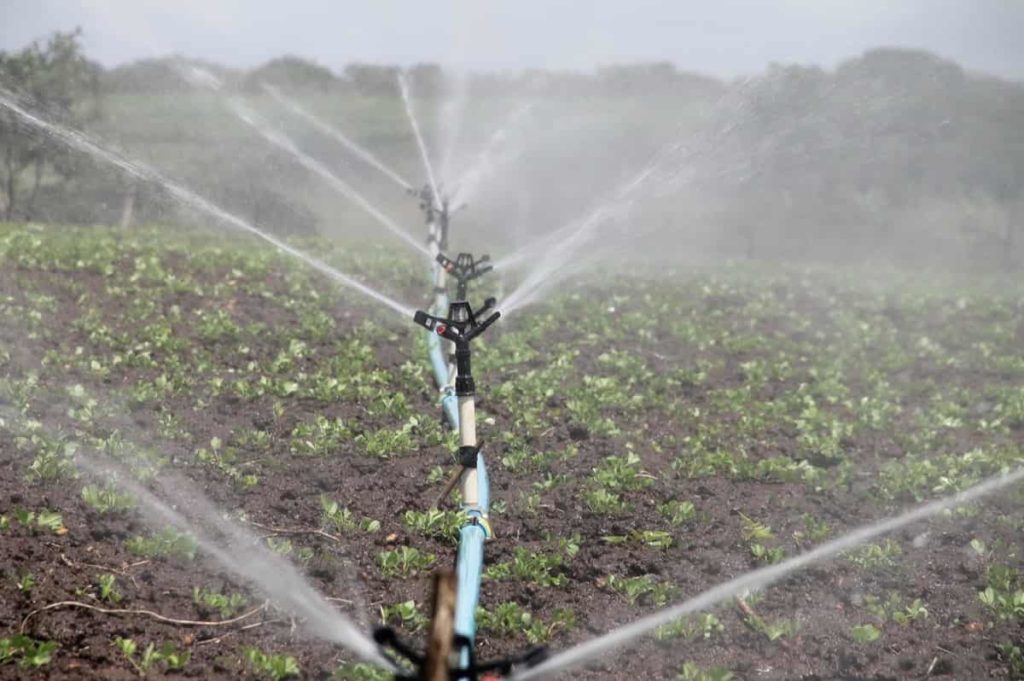MSME means Micro, Small, and Medium Enterprises. MSME loans are the types of loans that you can avail if you have a business or an entrepreneur. This type of loan provides you with working capital that you can use for various purposes such as buying new inventory, buying new equipment, or helping your business grow. Several lenders in India offer MSME loans to their customers. Let’s check out a few MSME schemes for agriculture below.

Micro, Small, and Medium Enterprise (MSME) loan is a business loan, term loan, or credit facility offered by financial institutions in the form of working capital loans offered to individuals, MSMEs, startups, and many other businesses.
MSME loans are mainly used for business expansion purposes, starting a new business, meeting working capital requirements, managing or increasing cash flow, purchasing equipment/machinery, etc. In the agricultural food sector, micro, small and medium enterprises (MSMEs) are key to tackling food security, meeting growing consumer demand, and reducing poverty through inclusive and sustainable development.
MSME schemes for agriculture
Initiative for Development of Entrepreneurs in Agriculture (IDEA)
The scheme aims to promote agribusiness in the North East and help establish agribusiness as a profitable project. It also provides lucrative employment opportunities and additional sources of input and services.
Who can apply?
- Graduate and post-graduate in agriculture and related subjects.
- Graduates, postgraduates in other fields who have experience and skills to start agribusiness ventures may also be considered.
- Proposed units can be ownership, partnership, or company.
- Promoters or their units should not be defaulters with any government scheme and/or any bank or any other agency.
- The proposed unit for which financial assistance has been sought must be located within one of the eight northeastern states.
In case you miss this: Ways Pearl Farming Make You Rich in a Short Time, Subsidies from Government of India

Marketing Research and Information Network (MRIN)
Collecting and disseminating price and market data to enhance efficiency, sensitize farmers’ response to new challenges. To establish a nationwide information network by providing electronic connectivity to key agricultural marketing boards and directorates. Establish a comprehensive information network. Using information technology (IT) as an extension vehicle to sensitize and motivate farmers to respond to new challenges in agricultural marketing.
- Who can apply – Agricultural Marketing Boards / Directorate of State Governments Agriculture, and Market Committees.
- How to apply – Agricultural Marketing Advisor / Joint Secretary (Marketing), Department of Agriculture and Cooperation, New Delhi
Development of Agricultural Marketing Infrastructure, Grading & Standardization
This scheme has been implemented in states that, where required, have amended the Agricultural Produce Marketing Regulation (APMC) Act, Direct Marketing, and Contract. To allow farming and to establish markets in the private and cooperative sectors.
Credit-linked back-end subsidies are provided for the marketing of agricultural commodities and strengthening and modernization of existing agricultural markets, wholesale, rural, or tribal areas. State Agricultural Marketing Boards / Market Committees and other state agencies will be free to decide the amount of the loan or to invest their funds according to their needs.
How to apply – Agricultural Marketing Advisor / Joint Secretary (Marketing), Department of Agriculture and Cooperation, New Delhi
In case you miss this: Poultry Farming in Tamil Nadu, How to Start, Schemes, Loans, and Subsidy

Gramin Bhandaran Scheme
It is an investment subsidy for the construction/renovation of rural warehouses.
- Nature of assistance – 25% subsidy to farmers, 15% of the project cost to companies
- Who Can apply – SHGs, Companies, NGOs, and Cooperatives
- How to apply – Agricultural Marketing Advisor / Joint Secretary (Marketing), Department of Agriculture and Co-operation, New Delhi.
SFAC (Small Farmers Agribusiness Consortium)
This scheme provides venture capital assistance in the form of equity and arranges training and visits of agripreneurs, etc. To help set up agribusiness ventures in close association with banks. To mobilize private investment in the establishment of agribusiness projects and thus provide a secure market for producers to increase rural income and employment.
To strengthen the backward links of agribusiness projects with producers. Helping farmers, producer groups, and agricultural graduates increase their participation in the value chain through the Project Development Facility. Arranging training and tours for agri-entrepreneurs setting up identified agri-business plans.
- Nature of assistance – Financial assistance up to a ceiling of Rs.5 lakh
- Who can apply – Individuals, farmers, producer groups, SHGs, Agripreneurs, etc.
- How to apply – Agricultural Marketing Advisor / Joint Secretary (Marketing), Department of Agriculture and Cooperation, New Delhi.
In case you miss this: Cold Storage Subsidy, Loan, and Business Plan

Establishment of agri-clinics and agri-business centers
To provide extension services to farmers on a payment basis through the establishment of economically viable self-employment schemes. The selected trainees are imparted agri-preparation training for two months at a recognized nodal training institute. Trained agriculture graduates are also provided one year of free handholding support in obtaining bank finance, setting up their own business in the area, etc.
- Who can apply – Regardless of agricultural graduate age.
- How to apply – Joint Secretary (Extension) Department of Agriculture and Cooperation, Krishi Bhawan, New Delhi-110114.
Financial Assistance for Promotion of Youth Activities and Training (FAPYAT)
It aims to encourage leadership qualities, educate rural youth about the importance of the agriculture sector, prevent migration to cities, and enable entrepreneurs to learn modern training methods. The Ministry of Youth Affairs and Sports has various schemes to help youth and promote national unity and encourage them to eradicate social evils.
- Types of assistance – Funding under the scheme will be provided in a standard manner.
- Who can apply – The age limit for young people to join these training programs is between 15-35 years.
- How to apply – Eligible NGOs will submit their application along with the required documents along with the recommendations of the State Government, UT Administration, District Collector, NSS Regional Center.
Promotion and strengthening of agricultural mechanization by training, testing, and demonstration
Farmers need specialized training in agricultural machinery and farm mechanization etc.
- Nature of assistance – 100% grant-in-aid for purchase of machinery and emergency expenses
- Who can apply – Farmers, NGOs, Farmers’ Societies, Manufacturers, Importers
- How to apply – Joint Secretary (M&T), Agriculture & Cooperation Department, New Delhi
Post-harvest technology and management
Establishment of units utilizing the available post-harvest technologies, scientific storage, packaging technologies, and technologies for byproduct management for animal feed and compost developed by ICAR, CSIR, and those identified from within the country and abroad in the production catchments is supported with 40% assistance from the Government under the bilateral agreement of ICAR and Self Help Group (SHG)/Cooperative Societies of Farmers/Non-Governmental Organizations (NGOs).
Nature of assistance – 100% grant for the purchase of machinery and emergency expenses per demonstration for equipment as under;
- Power operated: Rs.3,000
- Bullock drawn: Rs.1,500
- Manually operated Rs.1,000
In case you miss this: Agriculture Subsidies and Schemes – In India

For hilly areas cost per demonstration will be about 1.5 times the above cost. Rs.2,00,000 or 40% of cost whichever is less.
Who can apply – Farmers ‘Self Help Groups (SHGs) / Consumer Groups / Farmers’ Cooperative Societies / Non-Governmental Organizations (NGOs) may enter into a bilateral agreement with ICAR to provide units after harvesting using available technologies and management, value addition.
Technologies for the management of scientific storage, packaging technologies, and by-products for the management of by-products for animal feed and fertilizers developed by ICAR, CSIR and identified in production catches from within and outside the country.
How to apply – Joint Secretary (M&T), Department of Agriculture and Cooperation, Krishi Bhavan, New Delhi – 110114.
Capacity Building to enhance the competitiveness of Indian Agriculture and Registration of Organic Production
Assistance to farmers/agriculture-related organizations in creating computerized commodity-specific market information systems. Creation of product-specific / country-specific databases in sanitary / Phyto-sanitary measures, quality standards, and environmental standards affecting trade in agricultural products.
- Nature of assistance – The scheme will be run on a cost-sharing basis with the state government or other private, parastatal, non-governmental organizations.
- Who can apply – User Group (UG) of Farmers / Non-Governmental Organizations (NGOs), individual farmers who are in a position to invest at least 30% of the cost of the project/technology for organic farming.
- How to apply – Joint Secretary (Commerce), Agriculture and Cooperation Department, Krishi Bhavan, New Delhi – 110114.
Development of commercial horticulture in an open field
Development of commercial horticulture in open field conditions, including components such as planting material, planting, irrigation, fertigation, precision farming, GAP, etc. Rs. 75 lakhs per project (Rs. 125 lakhs for date palm, olive, and saffron) projects covering an area of more than 2 hectares.
- Nature of assistance – Credit linked backend subsidy; 40% of the project cost up to Rs. 3 million per project in the general area and 50% of project cost for NE and hilly and scheduled areas.
- Who can apply – The scheme is implemented through State Horticulture Mission Societies and other organizations which are assisted.
- How to apply – Mission Director and Joint Secretary (NHM) Agriculture Department and Cooperation, Krishi Bhawan, New Delhi-110114
In case you miss this: Farm Subsidies in India From Government

Development of Commercial Horticulture in a protected cover
At Rs. 112 lakhs per project covering an area of more than 2,500 sq.m.
- Nature of assistance – Credit linked backend subsidy @ 50% cost per project limited to Rs. 56 lacs
- Who can apply – The scheme is implemented through State Horticulture Mission Societies and other organizations which are assisted.
- How to apply – Mission Director and Joint Secretary, New Delhi-110114
Horticulture for Post-Harvest Management Projects
Description – Rs. 145 lacs per project with the addition of pre-cooling, grading, etc.
- Nature of the assistance – Credit linked back-end subsidy at 35% of the cost with a limit of Rs. 72.50 lakhs
- Who can apply – Societies and other organizations to which the assistance is provided.
- How to apply – Mission Director and Joint Secretary, Department of Agriculture and Cooperation, New Delhi
- How to Make Houseplants Bushy: Effective Tips and Ideas
- Innovative Strategies for Boosting Coconut Pollination and Yield
- Pollination Strategies for Maximum Pumpkin Yield
- The Complete Guide to Chicken Fattening: Strategies for Maximum Growth
- Natural Solutions for Tulip Problems: 100% Effective Remedies for Leaf and Bulb-Related Issues
- Revolutionizing Citrus Preservation: Towards a Healthier, Greener Future
- Natural Solutions for Peony Leaf and Flower Problems: 100% Effective Remedies
- Maximizing Profits with Avocado Contract Farming in India: A Comprehensive Guide
- Natural Solutions for Hydrangea Problems: 100% Effective Remedies for Leaf and Flowers
- The Ultimate Guide to Choosing the Perfect Foliage Friend: Bringing Life Indoors
- From Sunlight to Sustainability: 15 Ways to Use Solar Technology in Agriculture
- The Ultimate Guide to Dong Tao Chicken: Exploring from History to Raising
- The Eco-Friendly Makeover: How to Convert Your Unused Swimming Pool into a Fish Pond
- Mastering the Art of Delaware Chicken Farming: Essentials for Healthy Backyard Flocks
- 20 Best Homemade Fertilizers for Money Plant: DIY Recipes and Application Methods
- How to Craft a Comprehensive Free-Range Chicken Farming Business Plan
- Brighten Your Flock: Raising Easter Egger Chickens for Beauty and Bounty
- How to Optimize Your Poultry Egg Farm Business Plan with These Strategies
- Subsidy for Spirulina Cultivation: How Indian Government Schemes Encouraging Spirulina Farmers
- Ultimate Guide to Raising Dominique Chickens: Breeding, Feeding, Egg-Production, and Care
- Mastering the Art of Raising Jersey Giant Chickens: Care, Feeding, and More
- Ultimate Guide to Raising Legbar Chickens: Breeding, Farming Practices, Diet, Egg-Production
- How to Raise Welsummer Chickens: A Comprehensive Guide for Beginners
- How to Protect Indoor Plants in Winter: A Comprehensive Guide
- Ultimate Guide to Grow Bag Gardening: Tips, Tricks, and Planting Ideas for Urban Gardeners
- Guide to Lotus Cultivation: How to Propagate, Plant, Grow, Care, Cost, and Profit
- Agriculture Drone Subsidy Scheme: Government Kisan Subsidy, License, and How to Apply Online
- Ultimate Guide to Raising Araucana Chickens: Breed Profile, Farming Economics, Diet, and Care
- Bringing Hydroponics to Classroom: Importance, Benefits of Learning for School Students
- Ultimate Guide to Raising Polish Chickens: Breed Profile, Farming Economics, Diet, and Care
- Ultimate Guide to Raising Australorp Chickens: Profile, Farming Economics, Egg Production, Diet, and Care
- Silkie Chicken Farming: Raising Practices, Varieties, Egg Production, Diet, and Care
- Sussex Chicken Farming: Raising Practices, Varieties, Egg Production, Diet and Care
- Homemade Feed Formulations for Livestock: Discover Cost-effective Starter to Finisher Feed Recipes
- 20 Best Pig Weight Gain Supplements: Top Swine Weight Gain Formulas
- Ultimate Guide to Elderberry Farming: Propagation, Planting, Yield, Cost, and Profit